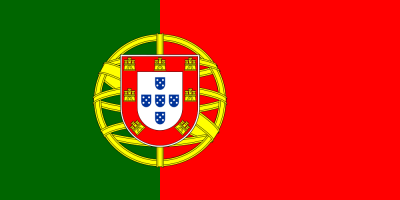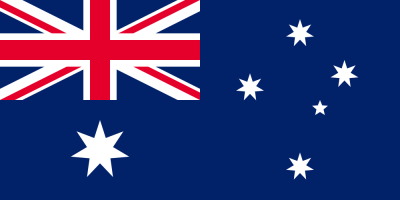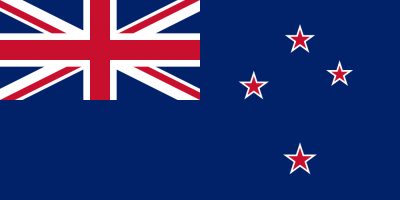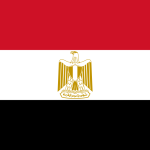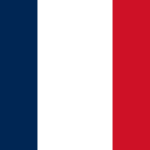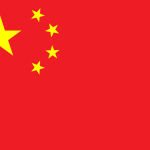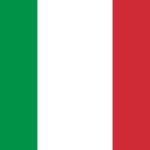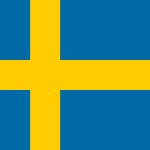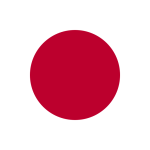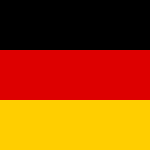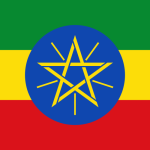Fiji flag color codes features a bold red background symbolic of courage and vitality, emblazoned with cultural icons like the British Union Jack and Fijian shield and crossed leaves. To stunningly recreate this meaningful banner in any digital or print application, having precise specifications on Fiji flag color codes is crucial. This guide provides official color format values including HTML HEX, RGB, PANTONE, HSL, CMYK, HWB and NCOL for accurately displaying the vibrant flag of Fiji. Now with easy access to the key Fiji flag color codes, you’ll have all you require to successfully integrate this distinctive national ensign into graphics, websites, products and more.
Table of Contents
What are the colors of Fiji flag?
The colors of the Fiji flag are:
- Red – The main background color covering most of the flag that represents courage and vitality.
- Blue – Used in the Union Jack in the top left corner, symbolizing connections with the United Kingdom.
- White – Also part of the incorporated Union Jack, representing peace and harmony.
- Light blue – The background color for the shield and leaves, stands for the tropical skies and oceans surrounding Fiji.
So in summary, the four colors used in the Fijian flag design are red, blue, white, and light blue. The red evokes the lively spirit of Fiji, while the other colors reflect British ties and the nation’s scenic natural beauty.
Fiji flag color codes & Color Names:
BLUE
| Color Model | Value |
|---|---|
| HTML | #000066 |
| HEX | 000066 |
| RGB | 0, 0, 102 |
| PANTONE | 286 C |
| HSL | 240°, 100%, 20% |
| CMYK | 100, 90, 0, 60 |
| HWB | 240°, 0%, 60% |
| NCOL | 2058-R80B |
RED
| Color Model | Value |
|---|---|
| HTML | #D21034 |
| HEX | D21034 |
| RGB | 210, 16, 52 |
| PANTONE | 485 C |
| HSL | 344°, 85%, 44% |
| CMYK | 0, 92, 75, 18 |
| HWB | 344°, 0%, 18% |
| NCOL | 1785-Y90R |
YELLOW
| Color Model | Value |
|---|---|
| HTML | #FFD100 |
| HEX | FFD100 |
| RGB | 255, 209, 0 |
| PANTONE | 109 C |
| HSL | 45°, 100%, 50% |
| CMYK | 0, 18, 100, 0 |
| HWB | 45°, 0%, 0% |
| NCOL | 10093-Y |
BLACK
| Color Model | Value |
|---|---|
| HTML | #000000 |
| HEX | 000000 |
| RGB | 0, 0, 0 |
| PANTONE | N/A |
| HSL | N/A |
| CMYK | 0, 0, 0, 100 |
| HWB | N/A |
| NCOL | N/A |
WHITE
| Color Model | Value |
|---|---|
| HTML | #FFFFFF |
| HEX | FFFFFF |
| RGB | 255, 255, 255 |
| PANTONE | N/A |
| HSL | N/A |
| CMYK | 0, 0, 0, 0 |
| HWB | N/A |
| NCOL | N/A |
SKY BLUE
| Color Model | Value |
|---|---|
| HTML | #87CEEB |
| HEX | 87CEEB |
| RGB | 135, 206, 235 |
| PANTONE | 298 C |
| HSL | 197°, 71%, 72% |
| CMYK | 42, 6, 0, 8 |
| HWB | 197°, 8%, 8% |
| NCOL | 1998-B50G |
What is the meaning of colors in the Fiji flag?
The meanings of the colors in the Fiji flag are:
Red – Symbolizes the courage, vitality and burning patriotism of the Fijian people. It also represents the nation’s warming climate.
Blue – Stands for peace, stability and the surrounding Pacific ocean of the island nation. Found in the Union Jack representing historical UK ties.
White – Indicates peace, honesty and purity. Also seen in the incorporated British Union Jack.
Light Blue – The pale blue background of the Fijian coat of arms depicts the tropical skies and seas surrounding the islands.
So in summary:
- Red: Courage, passion, warmth
- Blue: Peace, ocean, UK ties
- White: Honesty, harmony
- Light Blue: Tropical skies and sea
The vibrant red evokes the lively spirit of Fiji, while light blue and white represent the natural beauty and tranquility of the islands. The blue also acknowledges enduring bonds with the United Kingdom.
Explore More Flag Colors:
FAQs: Frequently Asked Questions:
Is Fiji a rich or Poor country?
Fiji is considered a middle-income country with a mixed economy. The classification of a country as “rich” or “poor” is often relative and depends on various factors such as income distribution, economic development indicators, and the standard of living.
Fiji’s economy is diverse, with key sectors including tourism, agriculture, and services. Tourism, in particular, plays a significant role in the country’s economy, attracting visitors to its picturesque islands, resorts, and cultural attractions.
Is Fiji very expensive?
The cost of living and travel expenses in Fiji can vary depending on factors such as location, accommodation choices, dining preferences, and personal spending habits. Generally, Fiji is considered a destination that caters to a range of budgets, but some aspects may be perceived as relatively expensive, especially compared to other Southeast Asian countries.
Here are a few considerations regarding the cost of living in Fiji:
Accommodation: The cost of accommodation can vary significantly, with luxury resorts and hotels being more expensive than budget accommodations or guesthouses. Prices may also fluctuate depending on the island and its popularity among tourists.
Food and Dining: Eating out in restaurants, especially in tourist areas, may be relatively expensive. However, there are also more affordable options, such as local markets and smaller eateries, where you can find reasonably priced meals.
Transportation: Transportation costs can vary based on the mode of travel. Domestic flights and inter-island transportation may contribute to expenses. Renting a car or using public transportation are options with varying costs.
Activities and Tours: Participating in tours, excursions, and water activities may add to the overall expenses. Prices for guided tours and adventure activities can vary.
Shopping: Souvenirs and goods in tourist areas may be priced higher. However, local markets and less touristy areas may offer more budget-friendly options.
Do I need a visa for Fiji?
visa requirements can change, and it’s essential to check for the most up-to-date information before planning your trip to Fiji. Visa requirements depend on factors such as your nationality, the purpose and duration of your visit, and any recent changes in immigration policies.
For many travelers, Fiji offers visa-free entry for short stays, typically for tourism purposes. However, the duration of visa-free stays and specific requirements can vary for different nationalities.
Here are some general guidelines:
Visa-Free Entry: Citizens of many countries, especially those from Western nations, may be granted visa-free entry for stays of up to a certain number of days (usually 4 months). This allows for tourism and leisure purposes.
Visa on Arrival: In some cases, travelers who are not eligible for visa-free entry may be able to obtain a visa upon arrival at the Fijian border. This option is usually available for short stays.
Work and Extended Stays: If you plan to work or stay in Fiji for an extended period, you may need a different type of visa. Work visas and longer-term stay visas often have specific requirements, and it’s important to apply in advance.
What is the religion of Fiji?
Fiji is a diverse and multicultural country with a variety of religious beliefs. The major religions practiced in Fiji include:
Christianity: The majority of Fijians adhere to various Christian denominations. The major Christian denominations in Fiji include:
Methodist Church: The Methodist Church is historically significant in Fiji and has a large following.
Roman Catholic Church: The Catholic community is also sizable, with a significant number of Fijians identifying as Catholic.
Anglican Church: The Anglican Church has a presence in Fiji, contributing to the Christian religious landscape.
Hinduism: A significant portion of the Fijian population practices Hinduism, particularly among the Indo-Fijian community. Hindu temples and festivals are integral to the cultural and religious life of this community.
Islam: Islam is practiced by a minority of Fijians, primarily among the Fijian Muslim community. Mosques and Islamic traditions are observed by followers of Islam in Fiji.
Is Fiji good for living?
Fiji can be a good place to live for those who appreciate a tropical island lifestyle, cultural diversity, and natural beauty. However, like any location, there are both positive and challenging aspects to consider. Here are some factors to weigh when evaluating whether Fiji is a good fit for living:
Pros:
Natural Beauty: Fiji is renowned for its stunning landscapes, white sandy beaches, coral reefs, and vibrant marine life. The natural beauty and outdoor activities can be a major draw for residents.
Cultural Diversity: Fiji is a multicultural society with a mix of indigenous Fijians, Indo-Fijians, and other ethnic groups. This diversity contributes to a rich cultural tapestry, with various festivals, traditions, and cuisines.
Friendly Locals: Fijians are known for their friendliness and hospitality. The sense of community and strong social bonds are often appreciated by residents.
Tropical Climate: Fiji enjoys a warm tropical climate, offering residents the chance to experience sunshine and pleasant temperatures throughout much of the year.
Tourism and Recreation: The tourism industry provides opportunities for recreational activities, water sports, and exploring the country’s many resorts, islands, and attractions.
Cons:
Cost of Living: The cost of living in Fiji, especially in terms of imported goods, can be relatively high. This can affect the overall affordability for some residents.
Natural Disasters: Fiji is prone to tropical cyclones, and the region can be affected by natural disasters. Adequate preparation and awareness are essential.
Limited Job Opportunities: Job opportunities, particularly in specialized industries, may be limited. This can be a consideration for those seeking specific career paths.
Isolation: Fiji is a group of islands in the South Pacific, and while this contributes to its beauty, it also means that it is somewhat isolated. Travel to and from Fiji may involve longer distances and higher costs.
What are the main jobs in Fiji?
Fiji’s economy is diverse, and the main jobs in the country span various sectors. The key industries and occupations in Fiji include:
Tourism and Hospitality: The tourism industry is a significant contributor to Fiji’s economy. Jobs in this sector include hotel and resort staff, tour guides, travel agents, and other hospitality-related roles.
Agriculture: Agriculture is a crucial sector, providing employment for many Fijians. Jobs in agriculture include farming, fishing, and forestry. The cultivation of crops such as sugarcane, ginger, and root vegetables is common.
Manufacturing: Fiji has a small manufacturing sector that includes the production of food and beverages, textiles, and clothing. Manufacturing jobs involve roles in factories and production facilities.
Education: Jobs in the education sector include teaching positions in schools and universities, as well as administrative and support roles.
Healthcare: Healthcare professionals, including doctors, nurses, and other medical staff, are employed in hospitals, clinics, and healthcare facilities across the country.
Government Services: Various government departments and agencies employ people in roles related to administration, public service, law enforcement, and civil service.
Is Fiji cheap to visit?
Fiji can be relatively affordable for travelers, especially when compared to some other South Pacific destinations. However, the cost of visiting Fiji depends on various factors such as travel style, accommodation choices, activities, and personal spending preferences. Here are some considerations regarding the cost of visiting Fiji:
1. Accommodation:
Fiji offers a range of accommodation options, from budget-friendly hostels and guesthouses to luxury resorts. Prices can vary, and budget travelers can find affordable options, particularly in local guesthouses.
2. Food:
Eating at local markets and smaller eateries can be more budget-friendly than dining at upscale restaurants and resorts. Trying local Fijian cuisine can provide an authentic experience at a reasonable cost.
3. Transportation:
Local transportation options, such as buses and shared taxis, can be cost-effective. Domestic flights and inter-island transportation may add to the overall expenses, so it’s essential to plan transportation costs accordingly.

